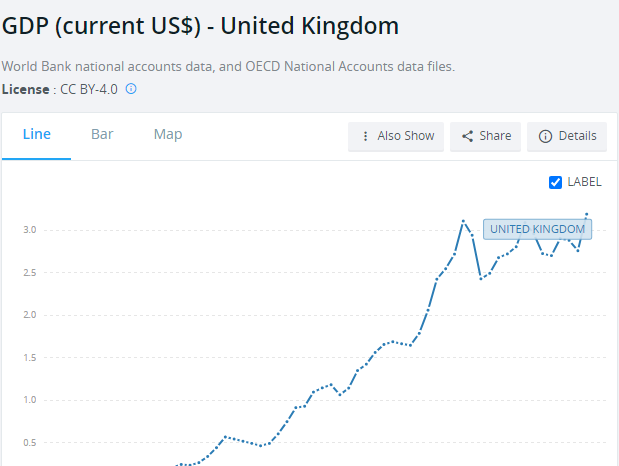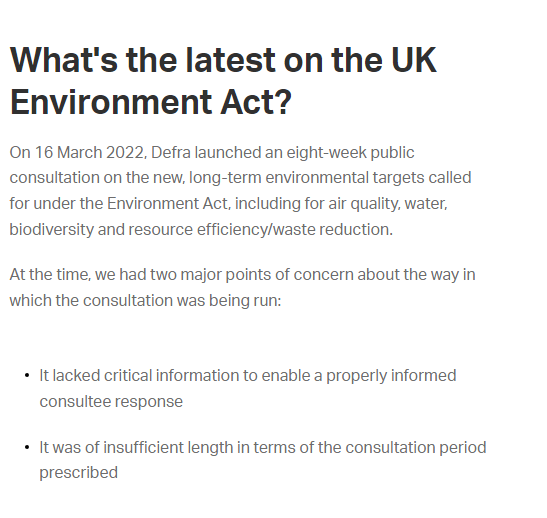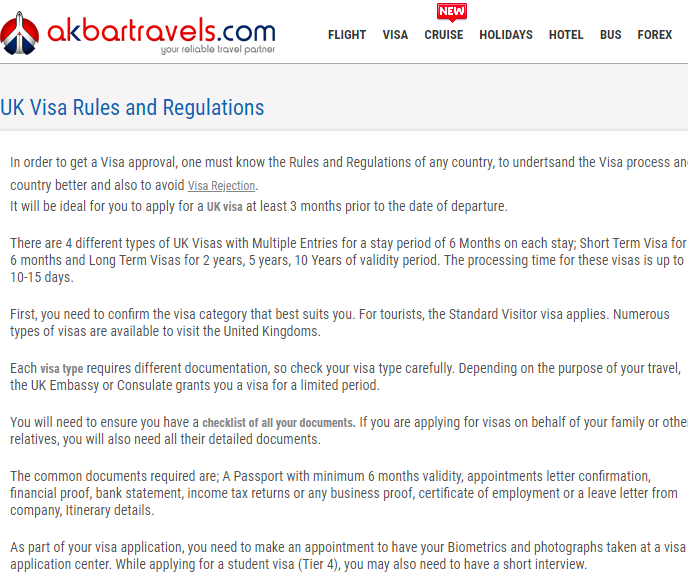MGBBT1BNE Business Environment Assignment Samples
Module code and Title: MGBBT1BNE Business Environment Assignment Samples
Introduction
The aim of the case study
The business environment plays a significant role and different factors such as political, economic, legal and so on provide immense impact on the business. The report aims to focus on different types of environments such as micro, macro, and internal factors and their impact on the business of TUI group and recommendations may help to improve the growth and development of the business.
Definition of the internal business environment
The internal environment of a business includes different factors such as plans, policies, human resources, value propositions, financial and marketing resources, maintaining a working environment and many more.
Definition of the micro business environment
The micro business environment comprises the activities which are related directly to the business and the elements of the micro business environment are consumers, suppliers, intermediaries, competitors and so on.
Definition of the macro business environment
Macro environment refers to the conditions which focus on the overall conditions of an economy instead of only one region or sector whereas it includes inflation, the purchasing power of consumers, employment and so on. Considering the research it is quite clear that sustainability is the mission of the business and it helps to overcome the challenges within the business process (Morrison, 2017).
Section 1
Business Overview
TUI group is one of the world’s leading tourism groups and the company is based in Germany the company has dominated the national market as well as the international market along with the UK for 40 years. The TUI group is focusing on different products or services such as over 400 hotels, 150 aircraft, 16 cruise liners and so on; however, the company covers the tourism value chain under one umbrella. The board of the TUI group comprises six members, and the supervisory committee consists of 20 members, this depicts the legal structure of the committee (Tuigroup.com. 2022).
Size
The company has dealt with 27 million customers in all over 180 regions and the revenue collection of the company in the Financial Year (FY) 2020-2021 is approximately € 4,731 Million. TUI Group operates with an extensive range of products or services and the activities of the company are well supported by 50,584 employees and those employees boost the productivity within the company. The company has acquired several strategies such as mergers and acquisitions to enhance the base of operation in an effective manner.
Sector and industry of operation
TUI group operates in the tourism industry and the environmental, economic and social sustainability of the group helps boost the operation in the tourism industry. Tourism provides great scope for people to connect with the natural environment and it helps to enhance the quality of life through refreshment and so on (Slocum et al., 2020).
Direct and indirect competitors
The direct and indirect competitors of the company are thomascook.com, jet2holidays.com, loveholidays.com, traveelupermmarkt.com and many more which pose a real challenge for the company. On the international range, the group has an extensive range of competitors such as First Choice in the UK, Kuoni in Switzerland, Grupo Iberostar in Spain, Hotelplan in Switzerland and many more which are direct or indirect competitors of the company (Aburumman, A.H., 2020).
Organisational structure and leadership team
The current Group Chief Executive Officer (CEO) of the company is Sebastian Ebel and there are three types of committees as Executive Board, Group Executive Committee, and Supervisory Board of Committee. The industrial revolution brings changes in the management within the companies or business processes and for this range, proper management is highly required to retain growth and development among the high competition (Matt et al., 2021).
Section 2
Impacts of the Covid-19 Pandemic on TUI Group’s internal environment
The sudden outbreak of the pandemic Covid-19 has had a severe impact on the internal activities of the business of TUI group and it causes an operational crisis within the company. At the initial stage of the pandemic, almost 201,000 consumers had to be rehabilitated to their original destinations which created huge tension within the internal management of the company.
On the other hand, the pandemic also poses a threat to the internal management such as Human Resource Management (HRM) of the company as the employee of the company had to be repatriated. For a temporary period of time, the company has faced adversities in the case of operation due to the massive contract and travel restrictions (Tuigroup.com. 2022).
The group has faced a 52.7% decrease due to the pandemic in the revenue collection because there are massive restrictions in the case of tourism in the national and international range. In the later phases, the TUI group has adopted several strategies such as focusing on hygiene and other factors that boost the business process and overcome the initial challenges for the company. The tourism company has collaborated with the occupational health team to provide medical support to the stakeholders of the company and take precautions before doing operations during the crisis.
The impacts of the UK government’s recovery plan on TUI Group’s internal environment
In the UK, the country has implemented a tourism recovery plan to overcome the challenges of the pandemic Covid-19 and over £25 billion is allocated for the tourism companies to boost the tourism sector. Along with that, the government of the UK has allotted £19 million to the domestic and international tourism market and £5.5 million for doing promotions as well as a campaign which enhances the scope of rebooting the activities in the tourism and hospitality industry (Assets.publishing.service.gov.uk. 2022).
With the support of the UK industry, the company has found immense confidence to continue its operations within the UK and the rules and restrictions of the country initially pose a challenge for the company. In the later phases, the allotment of the funds provides great support for the company to provide desirable support to the employees and helps reduce financial risk within the company. It may be stated that the rule and regulation of the EU bring flexibility within the hikes process and helps to regulate the micro and macro environment of business effectively (Somers, 2019).
Section 3
The impacts of the UK government’s recovery plan on TUI Group’s micro-environment
The tourism recovery plan that has been set by the government of the UK concerning the objective of the dynamic interface of the tourism sector has also impacted and benefited the post-pandemic business situation of the TUI group of companies. The economic surplus has been emphasised by the UK government as the latter mentioned received 41 million visitors and has profited with £28 billion that vastly impacted the micro environmental business operations of the TUI group of companies (Assets.publishing.service.gov.uk. 2022).
Moreover, the consumer approach has also been warmly welcomed by the UK government regarding the cultural attractions and diverse landscapes along with scenic excellence that directly impacted the business growth and operations of the TUI group of companies. The amount of the cultural recovery fund based on the aftermath of the global pandemic Covid-19 is £1.57 billion for the tourism sector on behalf of the UK government has also helped and impacted the business movements of the TUI group of companies.
UK government has come forward with numerous helping initiatives for the tourism sector to resolve the post-pandemic effect such as lessening Value added tax for hospitality, enhancing accommodations and funding the management of tourism organisations (Jones, 2022).
The impacts of the Covid-19 Pandemic on TUI Group’s micro-environment
The tourism sector of the UK has mostly suffered from the thrust of the Global pandemic known as Covid-19 and also badly impacted the micro environmental business scenario of the TUI group of companies. The downfall in revenue took place in the TUI group of companies after the occurrence Covid-19 pandemic as per the statistical graph the revenue of this company for the year 2019 was €18,928 million reduced to €7,943.7 in 2020 impacted the financial aspect of the microenvironment (Tuigroup.com. 2022).
Additionally, the huge loss of employees has also impacted the microenvironment of the TUI group of companies as it has been shown that the number of employees is equivalently less in 2020 (48,330) than in 2019 (71,473) ((Tuigroup.com. 2022). The organisation has to decline the staff costs and restructure projects after the pandemic situation and challenging interface of employees, and HR departments along with ardent transformations that vastly impacted the internal business environment of the organisation. Besides these, both the tangible and intangible assets of the TUI group of companies have declined followed by the degradation of financial position, which has had a notable negative impact on the microenvironment of the company.
Section 4
The impacts of STEEPLE factors on TUI Group’s operations
Social
According to some research studies, social mobility or dynamicity plays an important role in the enhancement of the tourism sector because of the sheer influence on cultural meets and intersections (Lugosi and Jameson, 2017). The enriched cultural history, the surging population and the diversity in the visiting sites of the UK play as social catalysts for the TUI group of companies regarding business operations.
Technological
The technological inclination toward the tourism sector of the UK is evident from the recent establishment of augmented reality in an art gallery treated vital for national fame (Tussyadiah et al., 2018). This event along with other technological brilliance in the UK supports the growth and existence of technological factors in the tourism and travel business operations in the TUI group of companies consolidated with proper utilizations.
Economic
The Gross Domestic Product of the UK is $ 3.19 trillion as per the statistical data extracted from the site of World bank shows the growing economic scenario of the country’s impactful towards the tourism sector also (Data.worldbank.org. 2022.) The strong and assertive surplus in the GDP interface of the UK is initiating the advancement and dispersion of the tourism sector that is helping the TUI group of companies for making the moves in the travel and tourism sector.
 Figure 1: Gross Domestic Product Of the UK (Source: Data.worldbank.org. 2022.)
Figure 1: Gross Domestic Product Of the UK (Source: Data.worldbank.org. 2022.)
Environmental
The launching of environmental acts and policies regarding the sustainability of the environmental resources and biodiversity along with the transparency of the resources by the UK parliament on 16th of March, 2022 has helped the TUI group of companies to look after the environmental factors related to tourism business (Refer to Appendix 1).
Political
The political scenario of the UK is quite stable and the scope of the travel and tourism business is going to be amplified on an assertive note over this country due to the equilibrium.
Legal
The four variants of visa laws of the UK regarding the time period or span of the visas of tourists are abided by the TUI group of companies that helps the organisation to maintain legislative sustainability towards business operations (Refer to Appendix 2).
Ethical
The UK emphasises responsible tourism, ethical considerations for customers and tour operators and justifying approaches that encourage the ethical viewpoints of the business operations of the TUI group of companies.
Conclusion
Suggestions for the TUI group of companies regarding the improvisation of micro, internal and macro environment
It will be suggested to the TUI group of companies to design the human resources in such a way that this factor will remain resistant despite any challenging situation such as the Covid19 outbreak. The huge employee turnover of this company due to the Covid-19 outbreak has caused major losses that may be mitigated by the proper reconstruction of human resources. Further, it will be recommended to the company maintain good relationships with consumers and suppliers and also with the government to balance the micro and macro environment respectively.
Recommendations about the benefits procured by the TUI group from the recovery plans of the UK government.
- It should be recommended to TUI group to focus on customer approach as per the constitutions of recovery plans by the UK government regarding the business operations in the tourism sector.
- More to suggest the TUI group of companies should take help of the cultural recovery funding by the UK government to enhance the financial declinations caused by the pandemic situation.
- Further, it will be recommended to the TUI group of companies to utilize the benefits of the reduction of value-added tax for hospitality and funding of management to enhance the business growth in the tourism sector.
References
Aburumman, A.H., 2020. The concept of global governance in tourism franchises: a case study of TUI group. Entrepreneurship and Sustainability Issues, 8(2), p.1321.
Assets.publishing.service.gov.uk. 2022. [online] Available at: <https://assets.publishing.service.gov.uk/government/uploads/system/uploads/attachment_data/file/992974/Tourism_Recovery_Plan__Web_Accessible_.pdf> [Accessed 13 October 2022].
Data.worldbank.org. 2022. GDP (current US$) – UK | Data. [online] Available at: <https://data.worldbank.org/indicator/NY.GDP.MKTP.CD?locations=GB> [Accessed 13 October 2022].
Jones, P., 2022. A review of the UK’s tourism recovery plans post COVID-19. Athens Journal of Tourism, 9(1), pp.9-18.
Lugosi, P. and Jameson, S., 2017. Challenges in hospitality management education: Perspectives from the UK. Journal of Hospitality and Tourism Management, 31, pp.163-172.
Matt, D.T., Rauch, E. and Riedl, M., 2021. Knowledge transfer and introduction of industry 4.0 in SMEs: A five-step methodology to introduce industry 4.0. In Research Anthology on Cross-Industry Challenges of Industry 4.0 (pp. 275-302). IGI Global.
Morrison, J., 2017. The global business environment: Challenges and responsibilities. Bloomsbury Publishing.
Slocum, S.L., Aidoo, A. and McMahon, K., 2020. The business of sustainable tourism development and management. Routledge.
Somers, F., 2019. European Business Environment: Doing Business in Europe. Routledge.
Tuigroup.com. 2022. [online] Available at: <https://www.tuigroup.com/damfiles/default/tuigroup-15/en/investors/5_Key-financial-information/2020/TUI_GB20_EN_Finanzkennzahlen.pdf-008c5e143d881b27cc36129dab3a1f4e.pdf> [Accessed 13 October 2022].
Tuigroup.com. 2022. About TUI Group. [online] Available at: <https://www.tuigroup.com/en-en/about-us/about-tui-group> [Accessed 13 October 2022].
Tussyadiah, I.P., Jung, T.H. and tom Dieck, M.C., 2018. Embodiment of wearable augmented reality technology in tourism experiences. Journal of Travel research, 57(5), pp.597-611.
Appendices
Appendix 1
https://www.clientearth.org/latest/latest-updates/news/why-the-uk-environment-bill-matters/#:~:text=What%20does%20the%20Environment%20Act,%2C%20biodiversity%2C%20and%20waste%20reduction.
Appendix 2
https://www.akbartravels.com/visa-rules-regulations/uk
Know more about UniqueSubmission’s other writing services:

